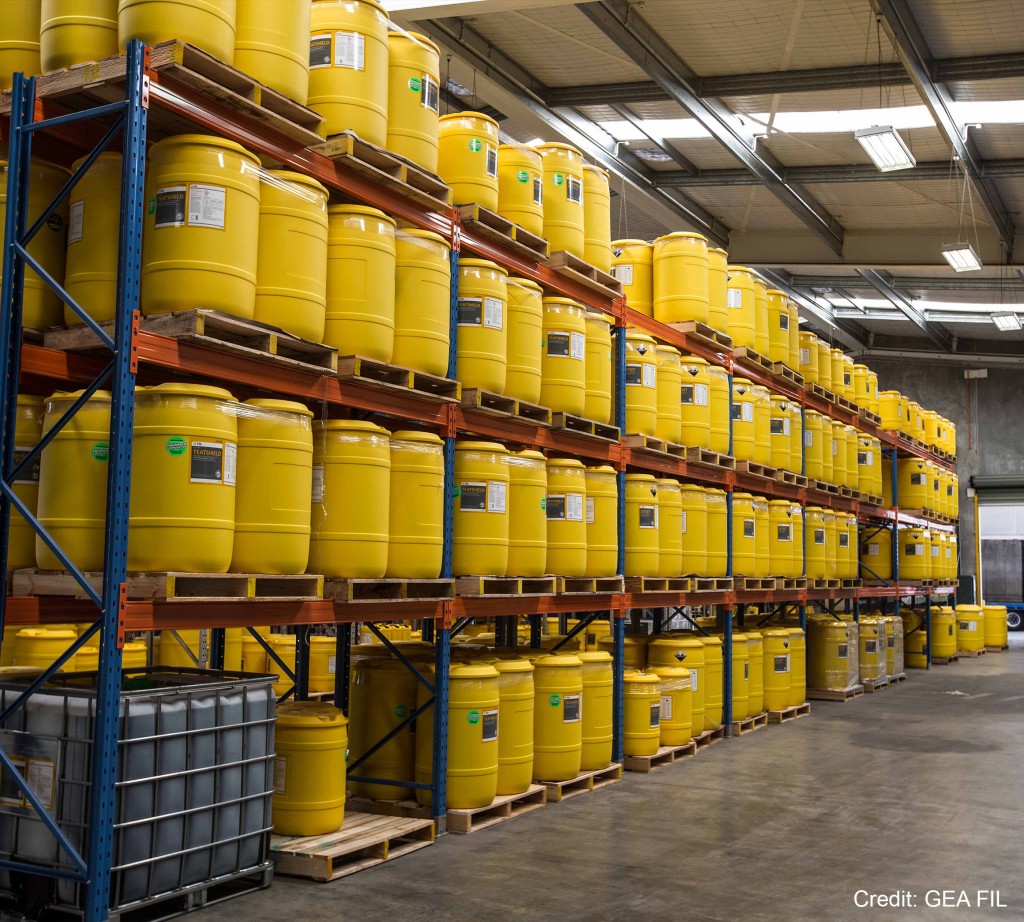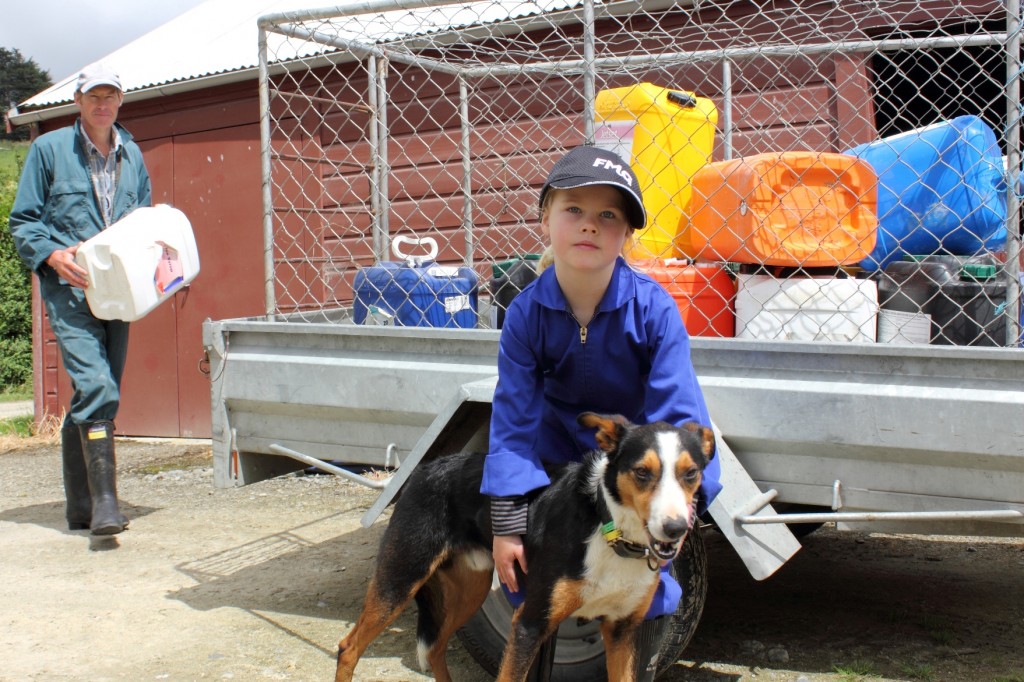Agrecovery Rural Recycling is seeing yellow since GEA FIL joined the recycling programme in early 2015.
The industry-good recycling programme now has 64 participating brands and offers recycling for all sizes of containers, drums and IBCs, plus recovery of unwanted or expired agrichemicals.
“We joined Agrecovery as soon as they started collecting large drums on-farm, as part of our ongoing commitment to offer a higher level of service to our customers,” said Jamie Mikkelson of GEA FIL.
And it seems GEA FIL customers have grabbed the free recycling opportunity with both hands.
“Over a quarter of the large drums we collect on-farm are FIL, and bookings are increasing all the time,” says Duncan Scotland of Agrecovery.
As well as collecting large drums direct from farm, Agrecovery has a network of over 70 collection sites where farmers can take their 0-60L containers for free recycling.
Recycling is easy
Ian Passey, a 4th generation farmer dairying in the Pohangina Valley, has been taking his empty containers to his local Agrecovery site since 2010.
With around 180 cows, Ian only has a small number of containers each year: “Recycling may be peripheral to running a farm but it’s simply good farming practice.
“I believe there’s a parallel between good farming and leaving your land in better condition. And of course, there is a deep satisfaction in doing so, whether you’re passing your land on to family or someone else.
“It’s part of how the majority of farmers are wired. Plus, recycling with Agrecovery is easy.”
Turning waste into resource
According to Agrecovery, containers that are buried will take more than 400 years to decompose, while burning them releases harmful toxins into the air and soil. Recycling on the other hand, turns what was waste into a useful resource, in this case, underground cable cover.
“We’ve now recycled 1.2 million kilograms of container plastic since the service launched in 2007, representing a collective energy saving of over two million litres of petrol.
“That’s because recycling plastic is more energy efficient than manufacturing new plastic,” says Scotland.
Find your local collection site

